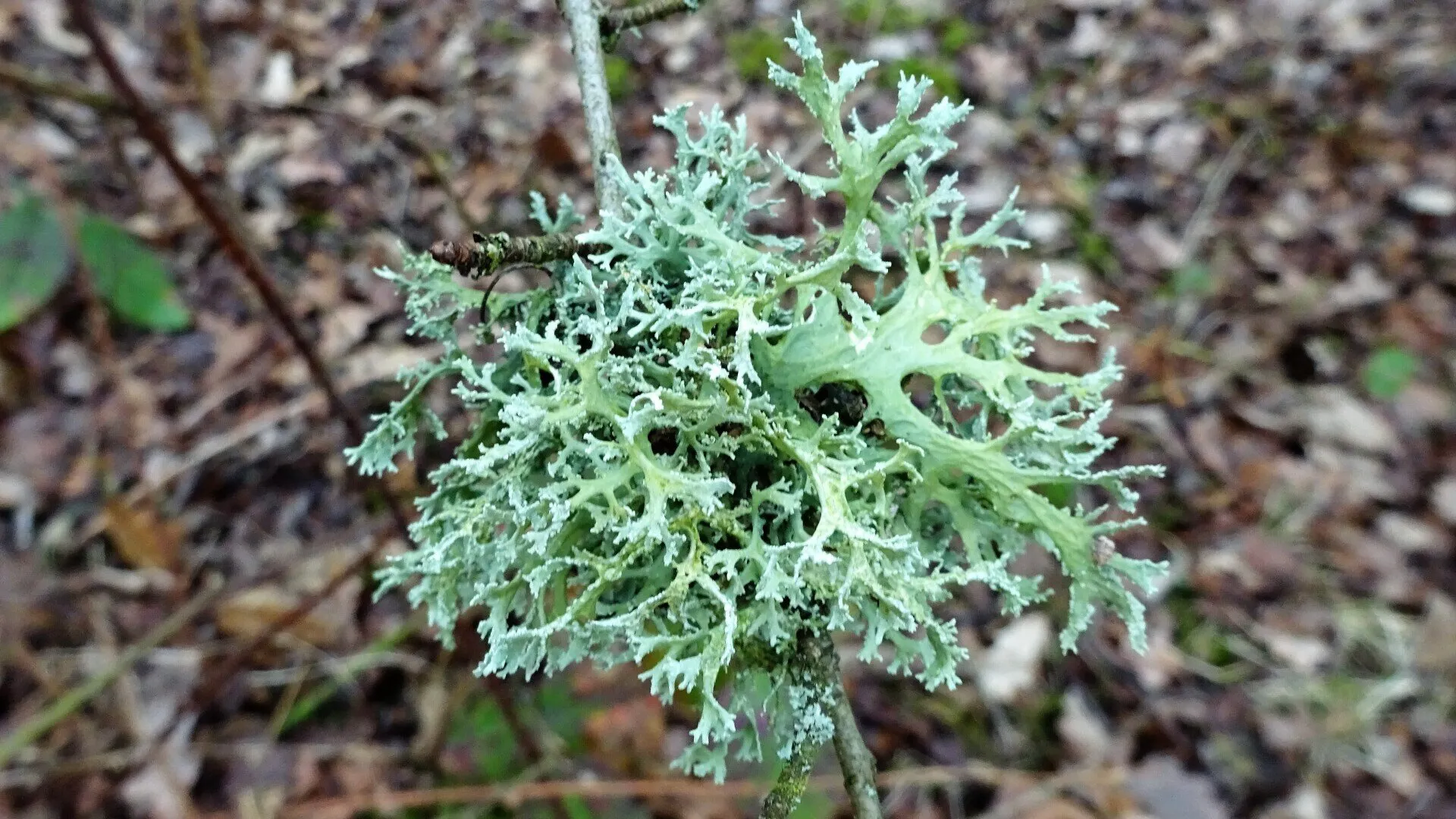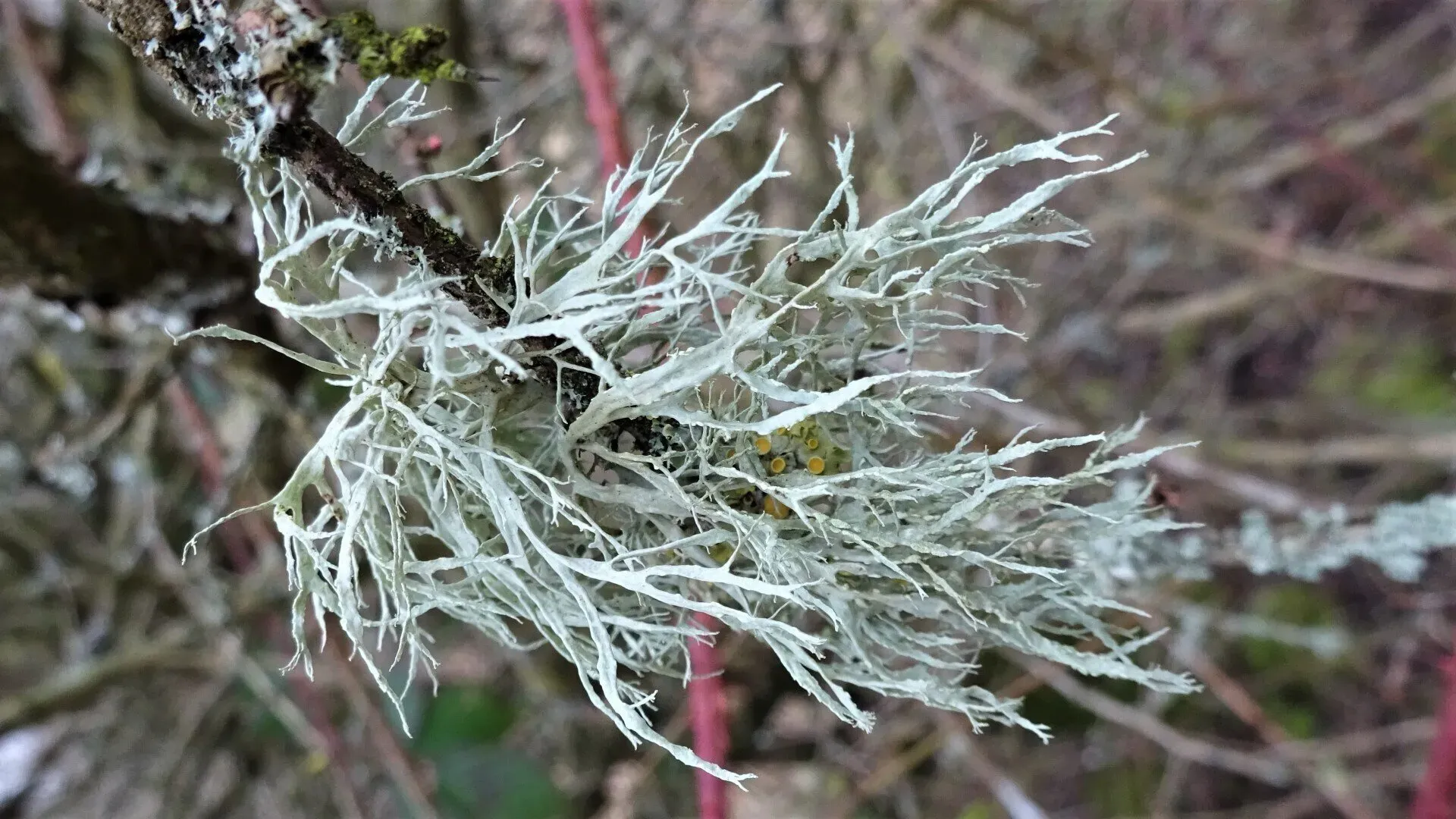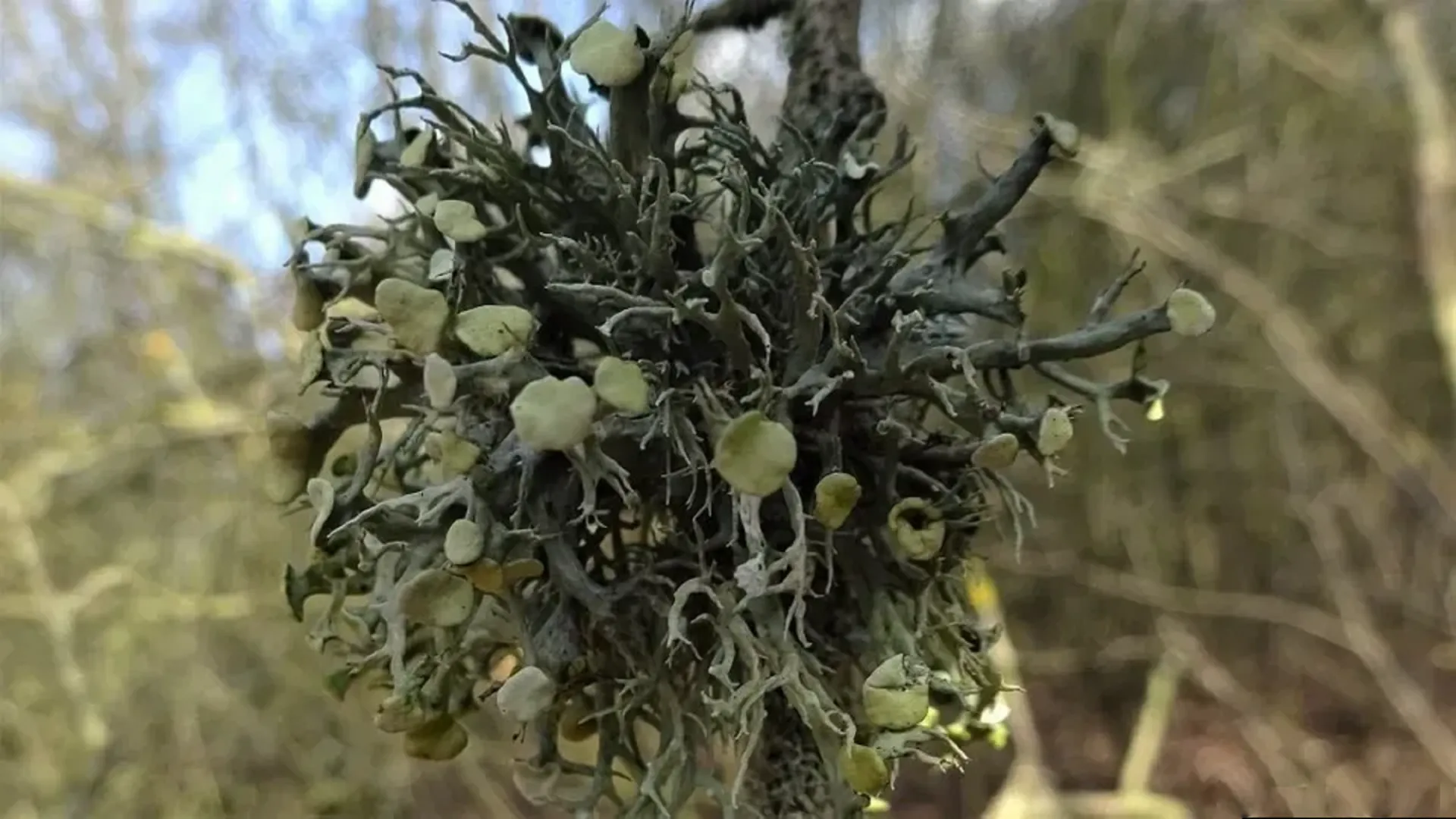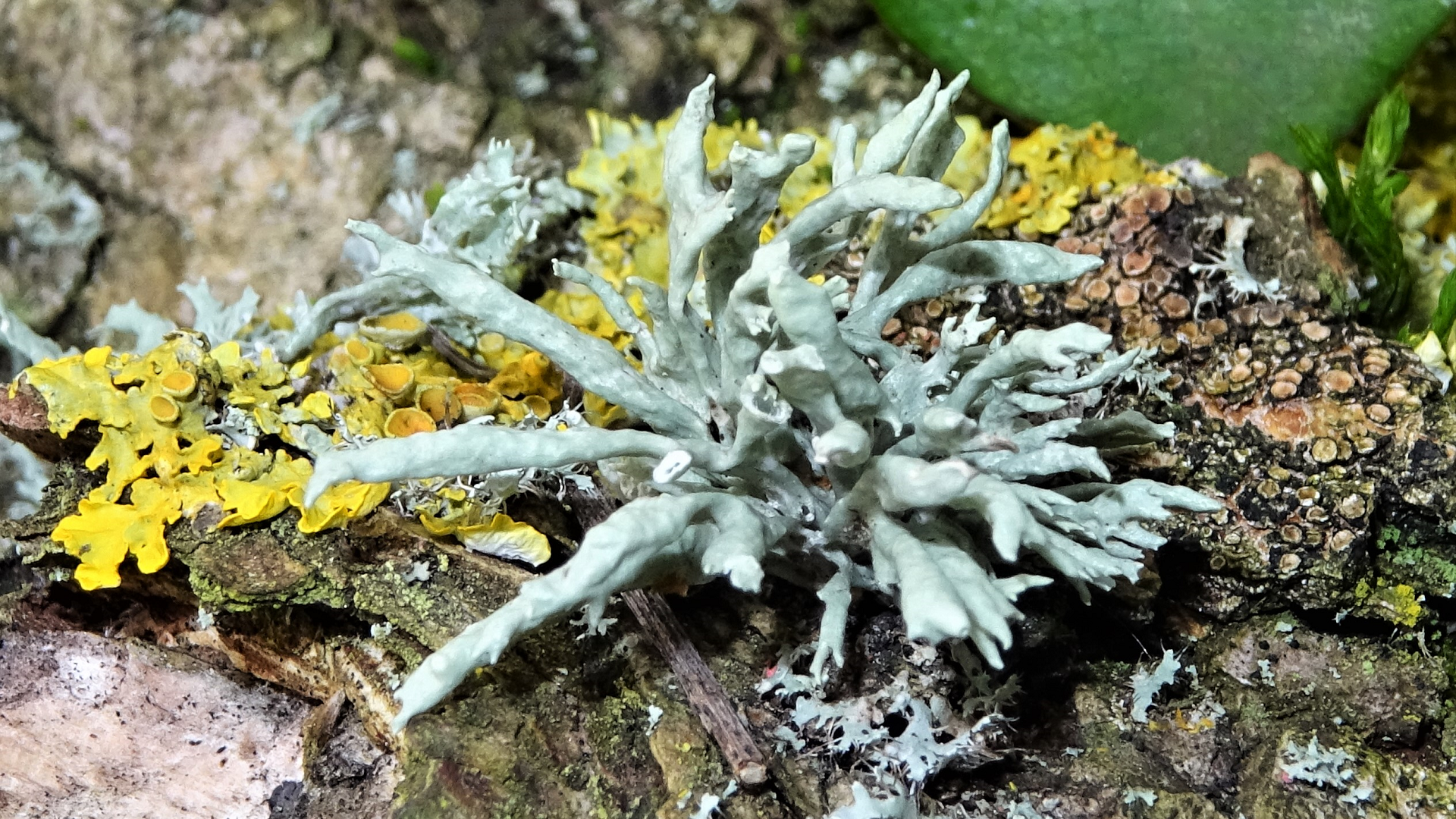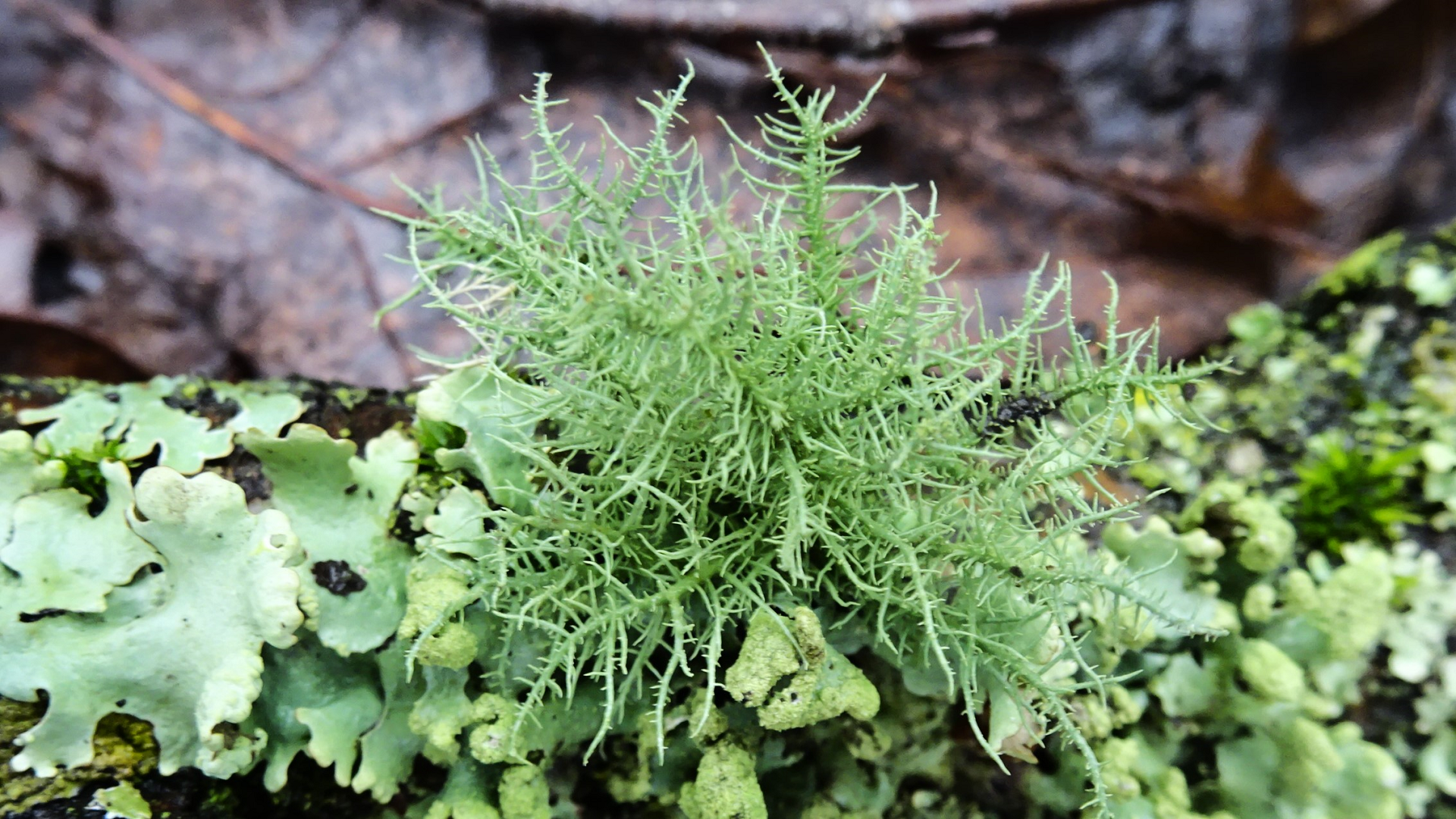FRUTICOSE LICHENS
Fruticose Lichens are shrub-like with branches that attach to twigs with a sucker-like holdfast.
Evernia prunastri
Always quite soft and drooping, particularly when damp. Its branches are green on top and white below. The upper green surface is caused by algae, whereas the lower white surface algae is absent. Dorsiventral is the term used when a lichen or plant has different dorsal and ventral surfaces. The dissimilarity in the upper and lower surfaces is more noticeable in young thalli when the thallus is turned over. Coarse soredia form along the ridged lobe margins which looks rather unneat. Sometimes known as 'Oak Moss' even though it is a lichen and not a moss.
Ramalina farinacea Does not have fruiting bodies instead it uses soredia to reproduce and has oval soredia-creating organs called soralia that form on the slender lobes. Farinacea means 'flour-like', the name referring to the structure of the soredia. Until the 1990s this lichen was quite rare due to its sensitivity to sulphur dioxide, but is now seen frequently.
Ramalina fastigiata This lichen develops round fruiting bodies for reproduction. During the early 1970s this species was believed to no longer exist in Essex, but now is considered rather common. This specimen was growing on hawthorn. The hollow lobes and presence of apothecia (discoid spore-bearing structures) give it a distended appearance. Apothecia are highly noticeable in well-formed specimens.
Usnea subfloridana A 'beard lichen' particularly sensitive to sulphur dioxide pollution. Its presence indicates the presence of good quality air. Thalli are usually found isolated on the uppermost tree branches. Branches of Usnea are round in cross-section and when carefully stretched a tough central cord becomes visible. This specimen was discovered on the ground after a branch became dislodged by storm Doris.
© hainaultforest.net. All rights reserved.


